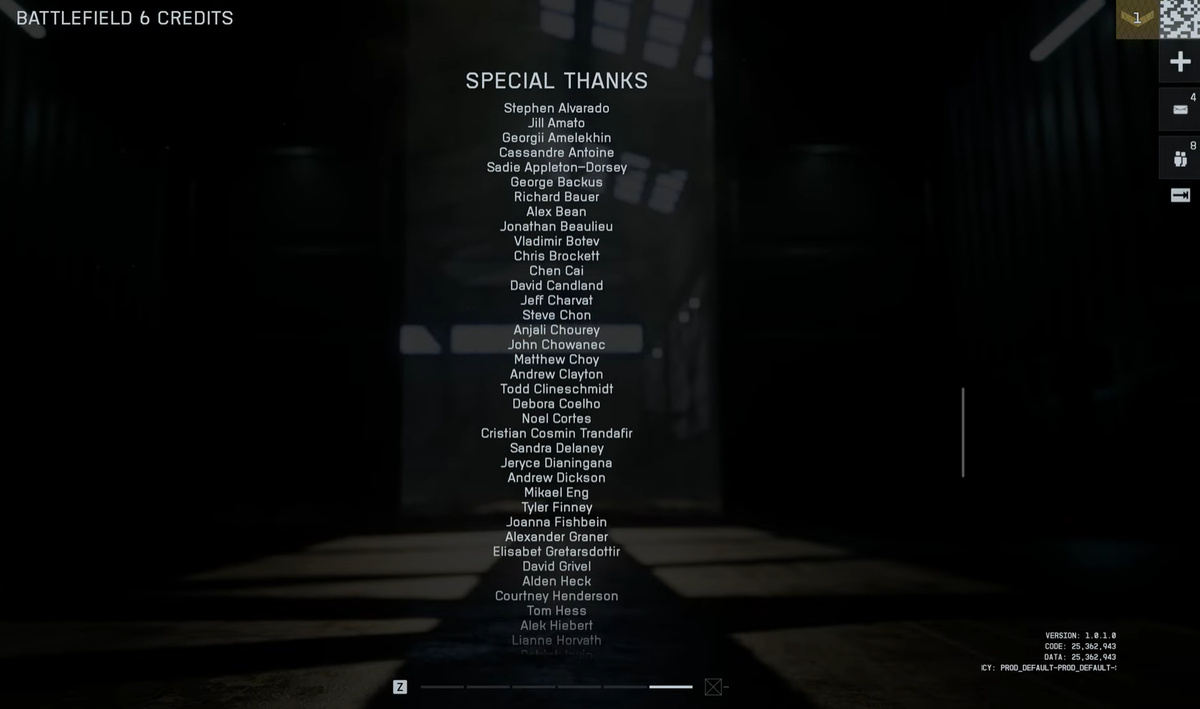It’s an all too common story in the video game industry: A developer spends months or years working on a game, the game comes out, and despite all the sleepless nights and stressful days, their name doesn’t even make the credits. Sometimes it’s the result of petty political squabbles; other times, companies are trying to quietly incentivize workers to stick around until a project’s completion, even though they might be dissatisfied with pay, crunch, or other conditions. Consider Demonschool, the newly released Persona-inspired tactics RPG from Necrosoft, a course correction.
Despite a relatively small core dev team, Demonschool lists all 145 people who contributed to it in any capacity over the course of its multi-year development cycle. Not only that, its credits explain, in an uncommon amount of detail, what each developer’s respective work on the project entailed. For example, the credits describe Brent Porter, the game’s 3D art lead, as having done “most of the 3D modeling and rigging as well as creating most backgrounds. Also developed the lighting scheme and the visual style used in tiling and texture work. Created a number of the 2D battle and NPC sprites and visual effects, as well as preproduction concept art, including determining the final proportions of battle characters.”
Demonschool director Brandon Sheffield told Aftermath that he’s been chewing on how to solve the crediting issue since the completion of Necrosoft’s last game, Hyper Gunsport.
“We worked [on Hyper Gunsport] with a localization company that refused to give the names of the people that actually did the work; they just wanted to have their company name in there,” Sheffield said. “They say they do that because ‘It's the standard’ and ‘to avoid poaching’ or whatever, but I hate that and think it's total BS. … I've also seen a lot of folks complain about how they weren't credited on a game because they'd left the studio before the game they worked on was finished. And indeed, our lead 3D artist left two years ago. But he's still the first artist credited because he set the style and visual tone for a lot of the game. Not working on the game to the very end doesn't negate the work he did.”
"Our lead 3D artist left two years ago. But he's still the first artist credited because he set the style and visual tone for a lot of the game."
The more Sheffield thought about how to meet the needs of so many different types of contributors – and discussed the matter on social media – the more a comprehensive, detail-oriented approach to crediting started to make sense.
“That had all been percolating in the back of my mind as we got close to finishing, and then it just sort of hit me as it came time for me to write the credits,” he said. “I discussed this approach with the team and everyone was fine with it, so we just went for it. We always want to credit everyone that touched the game, so even though the core team was 7 or 8 people at any given time, we credited around 145 people in Demonschool. Who cares if it's a lot of people? Who cares if it's long? They all did something and they deserve credit. And you basically can tell who the core team was by reading the descriptions. None of us are precious about that anyway.”
This resulted in some developers getting credited on an individual basis for the first time in their careers: “We made sure to ask every partner we worked with to give us every name of everybody who touched the game,” said Sheffield. “In the case of Bit Egg out of Thailand, they told me this was going to be the first actual credit for some of their staff.”
Sheffield hopes that providing greater detail than a simple title helps both players and prospective employers understand exactly what goes into a game’s development.
"We wanted to do this for a few reasons: One is that you don't usually know what a title means by itself,” he said. “Take ‘Artist.’ OK, what kind of art? What part of the game was that art in? It's useful for players to know that if they're interested in game development. But also say one of these people wants to get hired somewhere and is using Demonschool on their resume. Now everything they did is in the credits clear as day. ‘I created several of the enemy sprites and animations’ is more descriptive and useful than ‘I did some pixel art.’ And now what you've done is supported directly by the credits."
“Take ‘Artist.’ OK, what kind of art? What part of the game was that art in? It's useful for players to know that if they're interested in game development."
Sheffield is unsure if Necrosoft is the first studio to approach credits this way. He hopes someone else has at least done something similar. Regardless, he doesn’t think there’s anything stopping other studios from following in Demonschool’s footsteps – even if they wind up needing to credit substantially more people.
“I know in a Ubisoft game, something like this would be unwieldy, but maybe [if you did it] just for the core team of 300 or so?” Sheffield said. “If we can do this for 145 people to varying degrees of detail, a team with 100x the resources can do it for their core team of 300.”
So far, said Sheffield, the response to Demonschool’s credits has been exceedingly positive.
“I've mostly gotten responses from game developers saying they like how the credits are done, but I've seen a few things from players too – like ‘So that's what a game director does’ or generally just feeling like they're getting a look behind the scenes when they read this stuff,” said Sheffield. “A few people have asked questions in our Discord or Bluesky like ‘Who did all the art of the demon fish [in the fishing minigame]?’And other players can just answer them right away: ‘Oh, it's in the credits, that was Gustav Samuelson.’ I just think that's neat.”
Recommended




